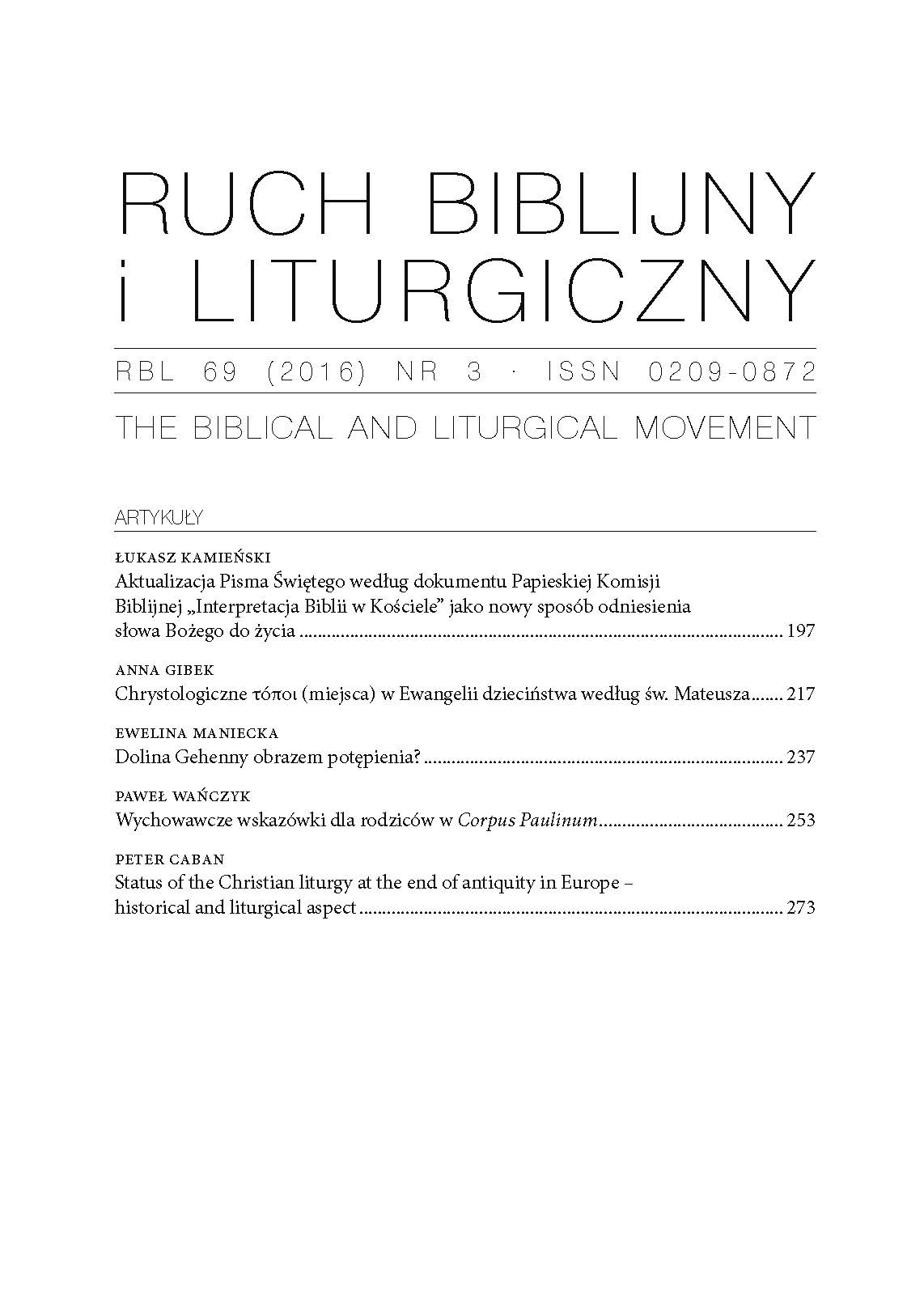Liturgia i moralność. Próba teologiczno-moralnej lektury Konstytucji o liturgii świętej Sacrosanctum Concilium
Liturgy and Morality. Constitution on the Sacred Liturgy Sacrosanctum Concilium in the Context of Moral Theology
Author(s): Bogusław MielecSubject(s): Christian Theology and Religion, Philosophy of Religion, Sociology of Religion
Published by: Polskie Towarzystwo Teologiczne
Keywords: Second Vatican Council; Sacrosantum Concilium; Gaudium et spes; co-relation between liturgy and morality; drama; covenant; prophetism; eschatological tension; active participation; sacrifice;
Summary/Abstract: The fiftieth anniversary of the promulgation of the Constitution on the Sacred Liturgy of Vaticanum II encourages attempts of its interpretation in the context of moral theology. It leads to the conclusion that there is a co-relation between liturgy and morality in the history of salvation. The Revelation of the Old Testament reveals the conjunction between worship and morality. Attempts to separate the two in the history of the Chosen People raise objections of prophets. Their criticism, however, comes together with the announcement of the future in which God will reveal the divisions between worship and morality. The New Testament shows the fulfilment of this promise in Jesus Christ. His salvific work establishes the Christian liturgy, in which man participates as a physical, as well as a spiritual being. The salvation, made present in the liturgy of the Church, is a relation, the co-operation of God and man, grace and freedom. Sacrosantum Concilium presents this revealed truth, emphasising the objective and subjective dimensions of liturgy as the work of Christ, in which a Christian participates actively, freely and consciously (participatio actuosa). The participation is mostly spiritual, therefore moral at the same time.
Journal: Ruch Biblijny i Liturgiczny
- Issue Year: 66/2013
- Issue No: 3
- Page Range: 265-280
- Page Count: 16
- Language: English

